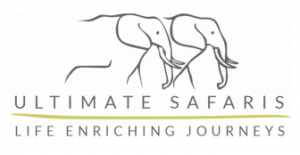 Given the current Ebola crisis threatening Conservation Travel to Africa, especially Southern and East Africa, we at Ultimate Safaris have prepared a fact sheet and more information on NAMIBIA AND THE EBOLA SCENARIO. We are hoping that this document can assist the trade with enlightening potential travelers to Namibia on the real facts regarding travel to Namibia currently, which is complete Ebola free, always has been, and continues to be so. In addition to this prepared document, Ultimate Safaris has also worked together with their suppliers in Namibia to provide supporting booking conditions in these uncertain times.
Given the current Ebola crisis threatening Conservation Travel to Africa, especially Southern and East Africa, we at Ultimate Safaris have prepared a fact sheet and more information on NAMIBIA AND THE EBOLA SCENARIO. We are hoping that this document can assist the trade with enlightening potential travelers to Namibia on the real facts regarding travel to Namibia currently, which is complete Ebola free, always has been, and continues to be so. In addition to this prepared document, Ultimate Safaris has also worked together with their suppliers in Namibia to provide supporting booking conditions in these uncertain times.
The Ebola pandemic in West Africa has caused media frenzy around the world, resulting in a general loss of perspective with regards to travel to the rest of Africa, especially southern Africa. ‘Conservation Travel’, a form of responsible travel to conservation orientated destinations such as Namibia, is essential to the sustainability and conservation of such a destination and, in times where world poaching and the general decimation of species worldwide is at an all-time high, a slowdown in Conservation Travel would be a hefty blow to our efforts towards these ideals.
This document is an attempt to equip you, our trade partners, with some facts about Ebola from a Namibian perspective which can be used to educate and convince potential travelers of the implications of their decision over whether to travel or not during the current situation concerning Ebola.
Here are some hard facts:
- There has never ever been a reported case of the Ebola virus in Namibia, since the virus was first discovered in 1976. Never before, and not now.
- The Namibian government implemented vigilant screening of all arriving passengers at Windhoek International Airport and at all other major points of entry into the country two months ago when the outbreak in West Africa first hit the news. This process continues and Namibia was one of the first countries worldwide to implement screening of this nature.
- Most long haul flights from North America, Europe, United Kingdom or Australasia have few stops other than in Johannesburg or Cape Town where screening is also very efficient. These stops tend to be relatively short so travelers coming to Namibia have limited exposure to local people. If guests are concerned about travelling through other African hubs they can take advantage of the direct flights into Windhoek from Germany.
- Namibia receives no direct flights from West Africa and is far removed from the general travelling routes used by most West Africans.
- The areas that guests visit in Namibia are remote and usually sparsely populated, with small communities located a long way from each other. Ebola infection is most prominent in heavily populated regions as is the case in West Africa.
- The most severely affected countries, Guinea, Sierra Leone and Liberia have very poor health systems, lacking human and infrastructural resources, having only recently emerged from long periods of conflict and instability. Namibia is an African success story of peace and prosperity. Since its independence nearly 25 years ago, the economy is flourishing with good infrastructure, adequate healthcare services and a stable government. Namibia is rated amongst the top 10 African countries based on its strong and growing GDP per capita, whilst still being the second least densely populated country in the world (after Mongolia), at only 2.6 persons per sq.km. Windhoek is one of the cleanest cities in Africa and, even as the capital city, only has around 350,000 residents.
- Namibia continues to be a safe, exciting, unique and highly recommended destination to visit – as indicated in a recent Lonely Planet article where Namibia was listed # 2 of the “Best Countries to travel to in the world for 2015” - after Singapore.
- Namibia’s hot dry climate is not conducive to allowing Ebola to spread easily as the virus cannot survive long in these conditions and it prefers the more temperate, humid and moist conditions prevalent in equatorial countries.
Namibia and the Ebola Scenario
Revised cancellation policy during Ebola uncertainty
Namibia should be on the bucket list of any intrepid world traveller, who shouldn’t be deterred by the fear mongering of international media.
